#lhlmeta
Text
li xiangyi, yin, and femininity
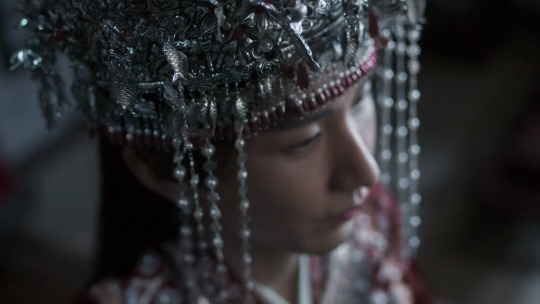
we all know that li xiangyi is a character of fractured identities. and li lianhua is an unreliable narrator to his own story. these make him not the most straightforward character to study. but I've believed in treating li lianhua as a part of li xiangyi, rather than separates. and there must be a common thread that ties all of him together. thus, I offer what I have found to be the most useful lens to use to view him as a cohesive whole, regardless as li xiangyi, li lianhua, or any other identity he may reinvent into: his 阴 yin qualities. (yin of yinyang)
this framework suggested by the drama's text itself has helped clarify to me his strengths, weaknesses, motivations, and struggles. by identifying this constant, too, makes it so much easier talking about what has changed in him.
[to the, hopefully growing, boli lhl hivemind @markiafc @ananeiah]
-
there are some notes on the concept of yinyang and chinese conceptualisation of gender I have to preface with.
[disclaimer: of course, I'm not even trying to cover a tip of what experts have extensively studied and debated in a depth it deserves. all I'm doing is try to parse the broad, fundamental ideas that are needed to explain my blorbos through my own spotty brain filter. so there bound to be nuances I've overlooked or some degree of my own interpretation. pretentious but needs to be done.]
阴 yin and 阳 yang are concepts characterised by passiveness, darkness, gentleness, femininity etc, and proactivity, light, toughness, masculinity etc respectively. a very key and handy concept to have in mind is their relationship to each other - which I'll not attempt at explaining better than literal scholars have:
Yin and yang exist only in relation to one another internally as the way warmth-coldness only exist relative to one another. Furthermore, when using yin-yang as an organizational schema, achieving balancing harmony is always the goal, not domination nor subordination of one to the other. [x]
while yin and yang can be symbols of femininity and masculinity, it doesn't mean all female are yin and all male are yang. it's certainly not a strict 1-to-1 equation. the concept of gender in chinese context is more social than biological. this suggests room for fluidity, and shaping of identities, often through social rituals as one journeys through life. it also means that there can be femininity in the masculine, and vice versa - in fact, that's only healthy because you need a good balance of the two worlds. no one part is better than the other. if you think of the two components as relative to each other, they are always interacting and affecting each other, rather than being strict and inert binaries. simply put, it needs to be kept in mind that there are greater nuances in applying yin and yang to the definitions of gender, and to avoid at all cost a simplification of this framework into a binary.
sure, the show has implied that lxy's powers and energy are yin-coded. but femininity is only one of the multiple attributes of yin. so how are we extending lxy's yin to femininity specifically? it's in the text that substantiates and qualifies lxy as feminine. dead women being used as proxies to his character. being literally dressed as a woman in order to put himself into their shoes and feel what they've felt. adopting a name that happens to be very, very feminine - 莲花 lianhua (lit. lotus flower) (it must be caveated that chinese names are NOT gendered. but there are just some names that are more feminine than others.) him coming to lead a life revolving around traditionally feminine, domestic things as li lianhua. him having interactions with the women around him like he's in his own element - no pressure and tension at all, unlike with all the other men.
as such, I'm more willing to use yin and femininity interchangeably in discussing lxy (while it's not necessarily applicable to every point that will be mentioned albeit there being some degree of implied association). and it's for the sake of elucidating what I feel is an intention or very plausible reading of the canon text in parsing feminine experiences in lxy's character. and thus, his queerness.
one last note is that taoism is going be mentioned quite a bit as well because of how much it as a philosophy honours the yin quality. its key tenets include valuing passiveness and inaction as a form of action, and submitting to the nature of things. and we will see how those come up in lxy's life too. (though I'm not gonna attempt to deep dive into it here beyond broad strokes of it.)
-
a huge part of li xiangyi's yin actually manifests in him being a passive person. this applies not just to li lianhua, but also li xiangyi. I know. ok wait hear me out. the idea of yinyang is after all components that can change and are relational to each other: thus, there were points in li xiangyi's life when he was less passive than other points, but they ultimately don't match up to the degree of aggression displayed by other men around him. so relative to their display of proactivity and aggression, he can be considered as passive. the best example is that of shan gudao proposing to launch an offensive on jinyuan alliance, while lxy - as much as he was arrogant about it - was standing his ground on not taking action in favour of peace.
it has already showed up in his childhood as well. he wasn't a particularly competitive child: 从来都没有谁要和你争 nobody has ever thought of competing with you over anything, he told sgd as he recalled of their times growing up. it was in fact sgd who was desperate to control and override lxy's presence. baby lxy did not hesitate at all over giving up on winning in favour of protecting his only rare few close relationships left in the world (given how hard-earned relationships are when they're non-familial !!!!). as much as I resent the one-dimensional writing of sgd, he has served as a very strong marker to highlight on lxy's yin.
-
I've harped on it several times before but this is the time I finally get to explain it proper: my own theory is that li xiangyi became an unparalleled swordsmaster because of his yin/feminine quality, not in spite of it. an interesting point that had been out in the open unclaimed until it was brought up in our friend group is that, li xiangyi does not actually fit anybody's conventional image of a 武林盟主 wulin mengzhu (ie. ruler of wulin). it would most likely have been some burly, muscular, ultra-masculine dude. even if they don't look like the demonic monk, it should be someone more like di feisheng. but. it's li xiangyi, the boyish, delicate-looking kid, who came to the top. (no wonder people - mostly men - love or love to bully hate him like weak men hate powerful women??)
"why didn't they cast someone who looks more like a wulin mengzhu (read: traditionally manly)?" no, no that's precisely the point. nobody said wulin mengzhu have to look manly. and also who is to define the manliness required to be in a place of authority? (or in my other meta, we would ask, who is to define anybody gets to have the authority over anyone else at all?)
by taoist ideal, gentleness is the most refined form of strength. li xiangyi has been haunting and distracting me in my chinese calligraphy practices lately because I'm thinking about how this must be the closest to what it felt like lxy becoming the best swordsman in jianghu. (so pretentiously brainrotten of me, I know, BUT IT'S REAL and I'm suffering.) mastering a chinese art is essentially about mastering a delicate balance between force and gentleness; being able to draw force from softness 柔中带刚 and an ability to maintain this balance. a beginner will instinctively hold a brush for the first time with brute, unrefined force. some fairly reputable contemporary calligraphers, according to my teacher, can be seen as being either too soft or too forceful - but are still able to pass off as good enough. it's then, the master of masters who will have the sophistication of a firm yet flexible control of the brush with the appropriate use of gentleness/laxness that produces a harmony of strokes. this idea extends to any other sort of chinese craft or practice including traditional chinese medicine, and I believe, swordsmanship too. I'm taking a fucking leap of faith here to say this because I practise NO sort of (chinese) martial arts, I must caveat. (someone who does may want to say something...) but theoretically that should be how it works.
it is not for no rhyme or reason, or *handwaves* that lxy emerged to the top AND is almost undefeatable. among a competitive, forceful (ie. yang) wulin, li xiangyi stood out with a power and energy defined by yin (ie. gentleness and stability) that led him to create his signature 扬州慢 yangzhouman. it is characterised by 慢 slowness (my calligraphy teacher says to us all the time to take it slow), and also described by dfs as 中正绵长 - which I would best describe by painting a picture of a steady and stable stream. these precisely speak of the essence of a mastery of gentleness as strength to me.
conversely, dfs's way in mastering power is very largely premised on taking action because he literally had no other choice in the environment he grew up in. both of them develop in opposite ways. it was the case of gentleness for lxy clearly because he grew up in a safe, nurturing environment that had allowed him to be slow and steady at his own pace, drawing on his natural gifts.
-
now top of the wulin world at 17, li xiangyi founds sigu sect. li xiangyi, the boy before becoming menzhu and li xiangyi the leader of sigu sect are not the same.
how then did a (relatively) passive boy like lxy end up founding sigu sect. this lxy is the one who was fostered into competition - though not in an abusive, twisted way. in fact he was raised in a rather taoist way by his shifu: to be honest with yourself and respect your opponent. so he honoured whatever powers he had been bestowed with by nature. he gives into it. even so, at another level, I just have a sense that shifu and shiniang's competitive marital spat had an insidious effect on the boys...though the detrimental effect was more on sgd than lxy. baby lxy feels like a sweet-natured kid who was just in his own zone, you know - some (aka sgd) would say, too much of him even, to have not realised what was wrong at all with his shixiong for years.
that's not all of course. I've always gotten the vibes that his attitude behind forming sigu sect felt more like, this is what all the good men of jianghu do and I will have to do it now especially that I'm the best. it didn't feel particularly personal to me, but rather what would have been expected of him by the social climate of wulin jianghu (eg. lxy saying to 光耀师门 bring honour to his teacher). it's definitely not an expectation from his shifu, who explicitly told him that he was never expected to become a noble figure of any sort, but just to be alive and contented. as concluded by the man himself as li lianhua: "有些人入了江湖是为了立心,而有的人入江湖为的是立命。我却不知道自己真正想要的是什么。some people enter jianghu for the cultivation of the mind, others for a cultivation of a meaningful life. but I never knew what I truly wanted." he was ultimately, unwittingly a passive player in his own story of becoming the great sigu sect leader.
(at this point, as a side note, I do wonder if there were any other similar sects or alliances that function the same as sigu sect that came before it. because I'm damn well sure there must be something, as likely as there must have been generations of wulin legends who came before lxy. but of course, this is not what the story is concerned with at all and I'm ok with that.)
it's crucial to point out that, even despite this being the phase of his yang in the display of taking action and enacting firmness, lxy had still done sigu sect with the sole purpose and manner of upkeeping peace and order (in the way of the pro-universal love, anti-aggression mohist 侠 xia leader of the people). he's still very characterised by yin in my books, especially when vis-à-vis to sgd.
a li xiangyi full of himself and made himself too useful to the people was only bound for a great asteroidal fall, in the concept of 物极必反 - or in taoist lexicon 反者道之动 (ie. anything that has reached its limit will only start developing in the opposite direction). if you think you're above all, you can only go down.
this manifests during the next time he took action - and it was one so forceful that it overpowered even his opponent, dfs who ended up being the passive, receiving party in this case - was in initiating the battle at donghai 10 years ago... and gee oh boy. it didn't end well - for both of them, but even more so for lxy. (dfs was like 'tis but a scratch (shrugs)' as compared to him being ripped off his tendons by jiao liqiao like nezha did to the dragon prince. truth is he had to go into a 10-year healing retreat served by his entourage. :p) ok, I digress.
xiao zijin was quick to attribute sigu sect's fall to lxy's arrogance - in turn setting the stage for lxy's 10 years of self-hatred and the framing of lxy as a villain? irresponsible figure? by jianghu. (god forbid girls do anything! ok for legal reasons, this a joke.) lxy lost his mind in ways I believe he never had in his life there and then upon seeing his shixiong dead. so, you could say he led the jianghu world to ruins out of love (using this term loosely). but it feels inaccurate to say it's due to arrogance. he did not do that out of self-importance or ego, especially when the revenge for sgd was a collective decision made by sigu sect as we know from the flashback. so when llh pinned all fault on himself for being arrogant in the past, it is with caution to take his words because that's the unreliable narrator in him speaking.
-
anyway, it's precisely li xiangyi that is capable of bouncing back from such a fatal crisis, equipped with his yin and a mastery that gave him the power of flexibility.
it's extremely vital to re-establish that literally the only thing that was keeping li xiangyi alive, physically, as li lianhua is yangzhouman. (monk wuliao literally said that to lxy even though he did facilitate in saving him.) it's the yangzhouman that was drawn from lxy's mastery of yin. without yangzhouman, li xiangyi would not even have the chance to become li lianhua and undergo any needed process of transformation. without li xiangyi, there would have been no yangzhouman. no li xiangyi, no li lianhua, get it?
the point is not to deny the change li xiangyi wants to make and has made. but to acknowledge that change isn't about complete erasure and destruction. something from you survives. something in you had kept you alive to have you come so far, regardless of all the bad bits that you want to denounce of. you've always been worth it.
bringing back the thing about his new name: the distinction must be made that he did not pick it because it was feminine but it just so happened a feminine name had resonated with him. (read: he didn't necessarily identify as a woman but identified with femininity. at least within the parameters of canon text.)
he also made an interesting choice to retain his surname for someone who was desperate to sever ties from his past. hmm. or maybe he wasn't that desperate? when li lianhua says li xiangyi is dead, I believe it meant that li xiangyi the sigumen menzhu is dead rather than li xiangyi as an entirety. li lianhua is a returning to the path lxy could have gone if he did not establish sigu sect, the path that shifu wanted him to take. when he walked to the doors of sigu sect in the aftermath, nothing was actually stopping him from going back (people were still around and alive, instead of all dead people, you know)... except for himself. taking that action would have been too much for him. so he went with the flow of life giving him a chance at rebirth and walked away. there, inaction as a form of action.
zhan yunfei and qiao wanmian have said to li lianhua, oh that doesn't sound like li xiangyi at all. but has it been considered that, maybe it was sigu sect's lxy who wasn't the real lxy? sigu sect lxy was one big performance of the values of masculinity and heteronormativity that llh had came to an awareness of, and eventually struggle with again and resist against in the final year of his life. there had only been some glimpses of his true nature allowed (validated by fang duobing talking about lxy at his altar).
imho, most flashbacks of lxy during that period felt impersonal and more like a template of a hero expected to marry his girl at 18. going through all the motions and steps of a normative life even before he was old enough to grasp and explore his own identity and what it meant in the world. no wonder he denounced so much of what he had done as lxy including liking girls. walking away then also meant a walk away from those duties and expectations. li lianhua is li xiangyi liberated from masculine duties and heteronormative performance.
in doing that, he had the opportunity for the first time in his life to explore what he truly wanted, at least within the parameters of what he could afford to do at that point. he could go on to build a domestic, feminine life within the space of jianghu (as I've established here). it's a kind of feminine lifestyle that doesn't quite exist in mainstream society - being a woman there meant to stay put in a domestic space without much room to move socially. nor did it exist in wulin jianghu because even the women there like shi-guniang and jlq were expected to be masculine, aggressive, competitive. so building a mobile home in the space of jianghu is his way of defining the life he wants and can have. li lianhua is the extension of femininity in li xiangyi - and one that can be free.
it's also worth talking about in my opinion what is one of the most important and a favourite dihua moment: when dfs said to lxy that his greatest weakness was to like being a hero. and a swordsman should be without weaknesses. I'm forever wrapped up in how many layers this can be read in. was he mad at lxy for liking to be a hero or having weaknesses, or both? if the former, it was dfs criticising, based on lxy's public reputation, lxy's oversized illusions about being a hero - a figure of masculinity with an unrealistic sense to uphold noble goals eg. saving the world etc. that is actually perfectly logical coming from dfs, the straightforward, no-nonsense, morally neutral guy with no illusions about heroism (in this case, he feels more like a yin). but at the same time, we should understand that lxy's motivations behind the donghai battle are more personal than noble. if any, it was actually the opposite of noble - it was like he was acting out of the role of a caretaker of his family, and at a cost of the peace and order of jianghu he was set on guarding(!!) dfs also knew that lxy was there just for his shixiong. and so, dfs, who happens to be the epitome of yang, can be read as a symbol of masculinity disapproving of lxy for being sentimental and emotional; for having the "feminine" desires to simply want to defend his family (not saying those are exclusively feminine traits but they have been conventionally associated as feminine). I think both layers of reading are correct and should work together to contribute to the complexity of their characters. (we can see how it contributes to lxy and dfs being the perfect yinyang halves to each other, which I will come back to briefly touch on later.)
-
for 10 years he lived a life of seclusion and staying-in-his-own-lane a taoist would be proud of. he knew he was dying and has always been ok with dying, as he claimed. but did he want to die? to think of it, it was the opposite. because in those 10 years when he could have 100% just taken action to take his own life, he didn't. in fact, he lived on and took care of himself in the way shifu wanted him to. he had simply preferred letting nature run its course. if bicha didn't take him, he wasn't gonna do anything. but if he died one day very soon, he would be ok with it too. sure, he was maybe banking on a lead to sgd's whereabouts to appear during his last years alive but that clearly wasn't the only thing on his mind for NINE years because he didn't actively go out seeking for that either. this is basically him telling dfs that he would just lie in the sun and wait for the sweet release of death, if dfs were to force him to fight. not even the mortal threat from dfs was enough to move him into action of fighting back or killing himself.
time and again, lxy as llh was dragged into fdb's cases but not only that, he also maintained an impersonal distance with them. it's starkly different from the usual (wuxia) hero archetypes (for eg. fdb) who would be more impassioned and personally invested in the plight of the victims- or unlike most seemingly aloof protagonists who would somehow grow emotionally invested over time. one of the many things I love about llh is that he never tries a second time to persuade people out of their decisions he finds unwise (eg. him just wanting to move on in response to the girls in 女宅 insisting on staying behind with their slave master at first.) he will not interfere in other people's choices made in their own lives. it's not his business. he didn't even want to be there, to be honest.
however as the story progresses, more and more people - especially men, his past, and the leads to the truth came back to demand and taunt him into doing something. they vary from well-meaning people without any harm intended such as fdb intruding upon his private space completely uninvited and qwm wanting him back; to dfs merely seeking him as a mean to an end initially (eg. I only need him to live long enough to have one last fight); and finally, on the other end of the spectrum, outright aggressive and hostile people like sgd and xzj who wanted him to die. under all this pressure, he tried his best to deflect, but he does waver especially when it comes to matters concerning the people he cares about aka his obsession wish of 10 years of looking for sgd's remains that had lied low until fdb entered his life, and then later on taking revenge for his shifu.
looking for sgd became his final bid at taking action. he was operating on a slim chance of getting some emotional closure from finding out his shixiong is dead for real, yes. what a good plan. but objectively unnecessary. or surprise! uhhh...finding out his beloved shixiong is actually alive and would strangle him for one corn chip? AND OH NO IT GOT WORSE- uncovering a devastating truth about his shifu's death that he could have totally gone on with life fine without knowing if he had continued not caring.
but it is sometimes just impossible not to care - it is only human to care. and he is human, not an icon in the image of a hero. so he took a chance, once more, and it killed him in unprecedented ways. it's donghai all over again. things in life don't go as planned. you fuck around and it fucks you back. finding out the truth behind his shifu's death and his family background from the past did nothing for him as li lianhua living in the present.
it's no wonder that this lxy decisively relinquishes the desire to take action in the end. he goes back to letting nature run its course. and this time, stands firmly to it despite everyone begging him otherwise. wangchuan flower could only give him a recovery (or survival?) rate of 30%. there's a 70% chance of failure and even in the 30% he was not sure what he was to become. in comparison, dfs took a 10% chance game of survival in a heartbeat, and it pushed him to new heights. that's how they differ: he thrives by taking risks and action while lxy the other way round. so, something like that has happened before and he wants none of it again.
-
he leaves lotus tower, only taking his horse and a sack - relinquishing almost every other material belonging he had - and sets off on a journey. before xzj interrupted...where to was he going?? I wonder. we don't know for sure, I think? and are we allowed to know? that makes the scene he had with xzj an understated inflection point in the very last part of his journey. yes, he was already on his way to...maybe die? but not necessarily. you don't have to travel distances with your belongings for that, right? or speak to dfs personally about not wanting to fight? (borrowing one of @ananeiah's takes.) regardless, he was definitely leaving behind jianghu - not only wulin jianghu (he already did that 10 years ago), but also the jianghu space he had carved out in the last 10 years.
what sparked the decision to jump off the cliff in him was dfs's words from the night of their wedding 10th donghai anniversary: 横扫天下容易,断相夷太剑不易 conquering the world is easy, breaking xiangyi sword is not. in the original context, dfs was talking about defeating lxy being harder than conquering the world. but when it came to this scene, it was to lxy about forsaking the very last worldly possessions he had after already giving up on lotus tower and hulijing (including releasing his horse), especially his only connection left to swordsman lxy.
perhaps it had dawned on him that, wanting things at all was bad for him. in the last 10 years, he lived a life of seclusion, wanting very little. but he had still wanted things. there were still things he couldn't let go of that had led him to this state. despite having lived on an identity inspired by a buddhist teaching for 10 years, maybe it was only at this point that he was finally the closest to reaching an understanding of it. (I wish I was knowledgeable enough right now to dive into the possible buddhist reading here but alas. I'll leave it to our resident expert @markiafc)
it doesn't quite matter in the end where he was going after all. what mattered was that he literally went where the water took him and we're not supposed to know where it ends. I'm not seeing this in a bad and pessimistic way though. I think the relief in all this is that he had tried his best to within his abilities. also it's a form of enlightenment in relinquishing a desire, an obsession, a need to take any more action in order to live well. thus his ending felt to me relatively tender, empowering, and kind - albeit bittersweet and heartaching - than other possible kinds of ending, in a story where it was very possible for him to have died under the knives of his opponents or bicha at any moment, outside of his control.
-
if you've come so far in this post, congratulations! but also a reveal is that... you're not immune to the dihua propaganda threaded throughout this post. :P
as mentioned, other men like sgd and xzj in lxy's life were incredibly hostile to him. their yang nature overwhelmingly powers his yin. but dfs is different. dfs is the yang counterpart that fits perfectly to his yin.
dfs's yang is one that contains yin, that mirrors lxy's balance of yang in yin. it was suggested in text they are yinyang-coded meant to complement each other, given that whenever wangchuan flower's yin vs yang properties were discussed, the two men were always spoken about in the same breath. more importantly, as with the above few analyses of dfs's words playing a big role in shaping of lxy's choices with multiple meanings - as well as their day-to-day interactions - we can see that they constantly play off each other.
dfs's yang energy has been used to help lxy prolong his life (though not saving him entirely), while lxy has used his yin energy to save dfs and subsequently helped him attain his breakthrough. dfs has also helped lxy in his breakthrough of yin but not in the same way as dfs's cultivation of his combative powers, and rather, it's for lxy an understanding of his own path to take in life - a cultivation of the mind (both times 10 years before and after). given how significant dfs is in the shaping of lxy's realisation of the yin path - alike his shifu has, it's no wonder that they were the only two people lxy had imagined in his last sword dance of a farewell to jianghu.
with each of them coming together to form the perfect yin-yang model, they're a harmony of yin and yang representing the cosmos. what I also love is that they didn't start out as a perfect fit, but only towards the end of the story was the harmonisation completed, which makes sense for two components that are always in a flux influencing each other. the fact that they were number 1 and 2 of wulin, and being the only ones capable of understanding each other in a level nobody else could... it all reinforces the cosmic sense of their relationship. they're the halves to a whole, fitting in a specific way nobody else can.
(I mean. technically this is going into the space of extrapolation based on a tangential interpretation of canon text, so do take it with a pinch of salt. but of course this pinch of salt can do wonders for a shipper's feast... :P and this certainly could have been a meta of its own expanding on dfs's side of the analysis, but this is it for now in this context.)
-
to think of it, li xiangyi has actually died more than that one time that turned him into li lianhua. first was a death of him as a nanyin royalty - I resent having to bring up nanyin like it should hold any weight to the narrative as far as I'm concerned, but the point being that he had a completely different (familial-based) life before that still stands. then he had a rebirth as li xiangyi, disciple and swordsman to his shifu and shiniang, and later died again when li xiangyi the sigu sect leader took over. lxy the sigu sect leader died at sea in the battle 10 years ago and came back as li lianhua. (just like nezha, died after battling at east sea and rebirthed from the lotus) li lianhua then dies by the end of the drama.
there can be a myriad of interpretations as to what exactly happened to him, including the possibility that he's still alive. regardless, we can agree that li lianhua as an identity has ran its course, and he had to evolve again. but into what form?
in the line of thought of yin and femininity, and how his transformation has been in an increasing degree of presentation of femininity - even way back when I was watching the show, I had the idea of him living socially as a woman post-li lianhua. I don't know what he would be realistically doing or what could be practical for him in such an identity. but conceptually it was sensible and compelling to me before diving deeper into the details. (I have more elaboration to do on this that I won't be talking about here publicly but it is in the same strain of idea as this other comparative meta I wrote.)
I think the next possible identity lxy can assume - alive in the material realm or not - is one that will be beyond a material being. a nameless entity. once you've gone through the phases of life - from not knowing to knowing, and perfecting knowledge, then to the surpassing of knowledge - you surpass all worldly existence, and become one with the cosmos.
I end this off with an excerpt from Tao Te Ching's Chapter 41 (I'm not pretending to have read the whole book ok but I couldn't resist including this):
明道若昧,进道若退,夷道若纇 [...] 道隐无名
The bright path seems dim; Going forward seems like retreat; The easy way seems hard [...] The Tao is hidden and without name. (x)
the character translated into "easy" is the same 夷 yi of li xiangyi's name. somehow this seems to encapsulate the journey of his life: one that seems blessed and smooth-sailing but ending up to be rocky and turbulent. but at the end of the day, after all that he had been through, he will become hidden and without name.
#莲花楼#mysterious lotus casebook#lhl#lhlmeta#my posts#a big win for the inaction fandom. lxy would have been patron saint#this inevitably turned into a 'lhl is a taoist and buddhist story if not a very chinese story' meta hbhjbjhbhjjb#the last thing i do before going to sleep is write this meta. the first thing i do after waking up is write this meta.#i feel so insane writing this. it kept growing like a monster. do you think this is a joke it's like my part-time job now#but it's one of the few times in my life i have confidence in my insanity. so.#crazier thing is. this meta is approaching 6k words yet i still think there must be things i haven't covered.#the last section is so nuts idk how i even wrote it guys i think i was possessed#it's also like the most pretentious way to put that he's dead in this world ok hjbjhbhjbhjbjbh#to be clear iirc the drama didn't say LXY'S POWER/ENERGY IS YIN in the same way it literally said dfs's energy is yang#but it's definitely implied by the explanation of the flower's healing properties for both of them. on top of yangzhouman#also fuck. another reason he didn't choose to save himself was so dfs could have the yang flower which he believed was what dfs wanted#thank u frens mark and ana for indulging my brain in the first time i brought the lxy as woman thing up. for it to have come this far#ofc disclaimer is that a lot of this is my own reading. it doesnt have to be agreed by everyone#i would be very happy though if any part of it resonated with anybody#also a good part of the analysis is based on my memory of the show. though i did revisit parts selectively to verify. sooooo. yeah.
145 notes
·
View notes
Text
re: jianghu as a queer space in mlc
here to answer @redemption-revenge !! in reply to this post
(also tagging @markiafc @ananeiah <3)
there are many definitions of jianghu, but this is specifically based on the framing of jianghu as the space people retreat to, away from the mainstream sphere governed by the imperial court. in that is a sense of rejection and defiance against the patriarchal, heteronormative values and norms, which had been enforced through a fixation on upkeeping order in the society. as such i guess it's not too much of a stretch to interpret jianghu as a queer space in a way that's characterised by a spirit of nonconformity to the norms. consequently, it makes sense for stories set in jianghu be used to illustrate and navigate queer identities/experiences/feelings - which I came to believe mlc had made really good use of.
there's always kind of a dichotomy between 江湖 jianghu and 庙堂 miaotang (ie. imperial court). like in mlc, there are two separate, distinct law enforcement bodies from the respective spheres - and jianghu strives to keep imperial court from interfering in their affairs. like how li xiangyi firmly stands against getting imperial court involved in jianghu matters. like how fang duobing is actively running away from the grip of the royal court on his life choices. the rejection of the mainstream (very conveniently and broadly put, confucian) norms in mlc also manifests in many of its key relationships being non-familial (in the sense of blood/marriage-based kinship) and there being little emphasis on the main characters' biological familial ties. (anyway this is for a whole different meta on its own... edit: it's here)
it's then actually a sort of irony that the imperial court's institution of law and order is what sigu sect/baichuan court had been formed to be a de facto counterpart to. so when li xiangyi becomes li lianhua, it triggered the process of deconstructing the meaning of installing such an institution and the need to maintain order to a fundamentally nonconforming space such as jianghu. mama fang's seemingly throwaway line of criticising li xiangyi and his mission is in fact the thesis statement in this particular reading of mlc's story: jianghu makes its own rules. nobody should dare to do it in its place.
now deprived of all means to fight like he used to, li xiangyi's new life as li lianhua is essentially a refresh of how he views jianghu. the death of li xiangyi the leader of sigu sect and top of wulin, meant taking apart the idea that jianghu is a lawless arena where the fittest fight to the top for power and control over wulin. and li lianhua then putting together lotus tower, living a life focusing on a domestic lifestyle this time for real far from the reach of the governance both from the imperial court and sigu sect/baichuan court, is him living the jianghu that's defined as a space away from any form of conformity.
with that, there's also a sense of queerness to this particular way of living as li lianhua, if you consider the chinese conceptualisation of gender being more social than biological. if femininity and masculinity were respectively characterised by inner/domestic sphere and external/any space outside of that, dare I say...it actually makes li lianhua's moving house mindblowingly smart as a metaphor for gender fluidity. lonely wanderers are common in wuxia but housed lonely wanderers? he carved for himself a domestic (ie. feminine) space in the wilderness - among a jianghu space that's still dominated by masculine values of aggression and competition. and being freely mobile makes this feminine space more fluid and less tied down than the more rigid, inert domestic, feminine spaces in traditional mainstream society. when you combine it with how his character has been fem-coded - even as li xiangyi (eg. yin-coded powers/energy) (also a whole other meta on its own... edit: it's here now), it speaks to a part of him that has always found appeal in qualities conventionally associated with femininity of stability, gentleness and non-aggression. and a rejection of expectations to fight and destroy. he is defining who he is in his own terms, in the true spirit of jianghu.
#莲花楼#mysterious lotus casebook#my posts#lhl#lhlmeta#jielin writes something#also ofc the queer reading wrt defiance against norms in the way of choosing jianghu extends to fdb (and dfs?) individually too#fdb. ace. in particular#this meta can go longer. so much more to be said. but i was committed to posting it before i go to bed#but i'll say here first that i think it's the femininity in lxy that is what precisely makes him an unparalleled swordsman. not in spite of#apologies if it doesnt make any sense or just going off tangents in general lol it's 2am#struggled supremely writing this. for hours i was mind to mouth.meme#i sound batshit insane by the last part but at least that idea had been somewhat peer reviewed by my lovely friends...........#mark and ana don't read though before yall finish the show#also this is what happens to ur brain when ur other media obsession is a hardcore confucian critique/deconstruction#of a royal court intrigue story
126 notes
·
View notes
Text
friendships as marital ties (and other notes on relational ties) in mlc

this is sort of a third installment in the series of meta on 'mlc as an exemplar of constructing queer narratives out of chinese ideological frameworks' (1. jianghu as queer space and 2. how it manifests in li xiangyi) - focusing on the nature of relationships in it. (which I've briefly mentioned in the first one and finally actually getting to it!!)
-
I would like to first call attention to chinese ideological frameworks as a premise of queer reading in mlc. the goal of chinese philosophy is to explore the becoming of human, taking two broad paths of the (mainstream) secular vs. escaping the secular. (these two paths are not a strict dichotomy, and rather, are ever in flux and in conversation with each other.) as said by @markiafc too, chineseness is so much about the rigidity of structures, and in equal part, a desire to break out of them. thus, chinese ideological frameworks can very much offer a rich reading of queerness - that mlc, a story very deliberately structured based on chinese ideologies (more accurately, with good reasons for me to believe that it is as such), has managed to materialise.
if the conceptualisation of queerness is premised on a defiance against mainstream norms, then a reliable way to read queerness in chinese ideological frameworks can be to deconstruct it by the mainstream confucian frameworks.
in mlc, this is implicitly set up with its stage of wulin/martial jianghu. then it is further broken down by asking, hey wulin jianghu is still closely related to the hegemonic values and the mainstream structure of authority (historically, 侠 xia being politically involved says a lot about this), so what is the true meaning of jianghu? what does it then really take for jianghu to be a queer space offering comfort and freedom to those who have escaped to it - to be the space that allow the transcendence of rigid roles and labels? mlc took a step further to resist the proxy to mainstream values that wulin jianghu has become.
this is why there can be a very strong buddhism reading of mlc (suggested here, expounded in the A+++ meta by @markiafc here and here, and also what I've seen discussed by cnet as well), given that buddhism is one of the 'extra-secular' ideologies, alongside (philosophical) taoism. I've also touched on a taoist angle in this meta. both schools are articulated in different sets of languages, but ultimately convey a same ideal of what it means to be human and how to live well - that is, to resist the roles and labels defined by the norms.
so, back to confucian frameworks.
a lot can be discussed about mlc with it. but in the context of this meta about relationships in mlc, it's specifically drawing on how confucianism conceptualises social relationships with familial ties as a cornerstone, and how these relational ties are inextricable from the conceptualisation of the 'self'.
as such, one of the things about mlc that has fascinated me is how deliberately it seems to ignore and reject the conventional familial ties (the kind by blood and marital ties). I've joked about how it is a miracle for me to love mlc as much as I do, as a prime dysfunctional family story enjoyer, despite none of its main characters struggling with any complicated feelings about their (biological) parents. but on closer examination, mlc is also making a comment on the model of familial-based relationships that dominates mainstream society - but through the absence of it.
with this, I want to talk about 1) how mlc rejects the conventional ties; and then 2) how it repurposes these ties in its own ways.
-
the five relational ties in confucianism:
father and son 父子有亲 - (natural) affection between father and son
ruler and subject 君臣有义 - righteous relationship between ruler and subject
older and younger brothers 兄弟 (长幼有序) - this is actually about seniority within the family; the order between older vs younger family members
husband and wife 夫妇有别 - differentiation between husband and wife (demarcated by the 内外 spectrum of gendered inner-external spheres)
friends 朋友有信 - trust between friends
logically inferred, all these ties are hierarchical and familial-based except for the last one: friends. ruler-subject is sort of an extension of the natural familial ties, while friendship is the inverse space of 1-4 (ie. you fall back on 5 to define a social relationship outside of the familial sphere that cannot be qualified as 1-4). while all are premised on mutuality, it is only no. 5 that is defined by a sense of choice and equality.
on the surface, 1-4 don't quite exist in mlc in particularly meaningful ways to the narrative or are even outright overlooked, and friendship is the relational tie most valued by mlc. we can tell it's true just by looking at the most meaningful relationships in mlc of difanghua. but at the same time, it is more nuanced. we can take a closer look at how the story plays around with most of the ties as part of a broader queer narrative.
-
1) how mlc rejects the conventional ties
mlc's rejection of mainstream relational ties can be best seen in fdb escaping from marriage. and it was not just any engagement with anybody but an engagement with the imperial family. he struggles with the prospect of being married to princess zhaoling, but generally, it's about the idea of complying to mainstream conventions and expectations that includes compulsory heterosexuality. all these point not only to a defiance against amatonormativity - the resistance of the traditional husband-wife tie, but also an irreverence for the ties of ruler-subject (the engagement being an imperial decree) and father-son (matters of marriage being sole decisions made by parents).
of course this is on top of how fdb's own biological father is a p-o-s, and the narrative gives fdb minimal struggles in this aspect, allowing him to sever this tie without looking back (I love it, yeap). along the same line is how lxy is an orphan, who came to gain important relationships that are built on natural compassion among people rather than innate, blood-based ties - even as llh. the sense of defiance from the narrative is especially stark to me considering that he could have a completely different familial-based life - as a son, brother, and ruler, if his biological family was still around. the narrative also deliberately treats his biological brother as a phantom, replaced with an older brother who he was bonded with neither by blood nor marital ties. on dfs's front, absolutely nothing is to be known about his biological family. his childhood history with the toxic patriarch of his life - who is not even his biological father - was afforded a clean break and closure.
we can keep going on, but that's pretty much the point.
ritualisation is one of the most important things of the confucianism school, especially to the honoring of these social relationships (and the officiating of social roles). the one ceremony/ritual we saw in mlc involving the main characters - or more accurately speaking, came closest to seeing - was the imminent wedding ceremony of dfs and jlq. even in that case, it was premised on non-mutuality with dfs being the unwilling, passive party. (fem-coded dfs? 25 marks.)
and that brings us to the next part.
-
2) how mlc repurposes these ties
that particular wedding ceremony gets hijacked by dfs and lxy/llh, and gets turned into an important milestone in their relationship. they consummate - what is on text - their friendship after a long time being more enemies and rivals than friends. it is a clear establishment of the trust they have for each other. and here it is where I circle back to the subject of this post: friendships as marital ties.
in this article, as a part of a feminist, egalitarian reframing of confucianism, there is a proposal for spousal relationships to be reframed as a friendship tie. (this aligns with the interrelatedness of the five ties eg. the ruler-subject mirrors father-son dynamic, with the confucian belief that rulers have an obligation to their subjects alike parents to their own children.) by doing so, it removes the functional, gendered differentiation assigned to marital ties, and shifts it to something equal, and independent of gender. you exalt the value of trust between spouses, instead of basing marital relationships on gendered roles. as such, spouses become more like friends, and conversely, friends can also become more like spouses. (romance not a prerequisite. it has never been about romance anyway.)
given that mlc has repeatedly applied marital motifs to llh and dfs's characters in their joint narratives, this opens up a reading friendships as a marital tie. seeing marriage as a bridge for strangers to become family, marriage in mlc becomes a metaphor for the chosen commitment and mutual trust put in by strangers/friends (non-familial ties) into the becoming of family. the blurring of lines between marital ties and friendship encourages a genuine space of queer experience that goes beyond any pressure for strict labels - of sexuality, and relationships as romantic, sexual, etc etc.
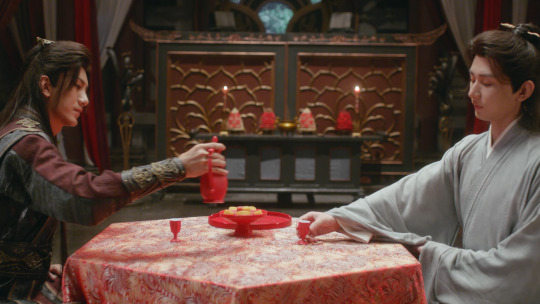
(note: despite the borrowing of a feminist concept, I strongly hesitate to call mlc a feminist story. it's a whole discussion - or debate - on its own. nevertheless, it is definitely a gender-conscious story that lays foundation for a strong queer and egalitarian reading.)
-
it is to be noted that it is intended - and also beneficial to take the confucian framework of relational ties beyond face value. the framework offers what it believed to be the most fundamental social relationship dynamics, and sees room for extension and matching to other kinds of relationships (all if not, most). a relationship such as teacher-student, which is outside of the five ties stated, can also mirror the affection of father-son ties, albeit not in a literal and identical way.
speaking of which. fdb and lxy/llh.
indeed they're known by others to be good friends. fdb thinks they're good friends too - insists on it, and puts his best efforts in keeping it that way. but does it really go both ways? if it does not, then can it really still be friendship? my humble take is that, ultimately - weighing in with llh's perspective - this is a relationship that is not so much based on trust, and rather, based on an innate affection that is only unique to family. (in this case, not blood/marital-based but one that was chosen and built aka lxy's relationship with sgd.) in other words, less of a friendship, more of a familial one.
it is a lot clearer considering their relationship from llh's point of view: some brat you never wanted in your life came barging in, and whether he was going to bring any positive effect to your life was secondary to the tranquility - which you have carved for yourself in the past decade - that is so integral to your personhood. no way. but the moment you hear that he's family? well, that changes the game completely. even before learning about fdb being sgd's son (then beginning to take initiative in showing greater acceptance), it is apparent in llh that there was an instinctive resonance with fdb as his shixiong's nephew. (eg. he remarked to his shifu's grave about how alike fdb is to himself.) this is unlike with dfs whom he had taken a much longer time to build trust with. you do not apply trust - aka the quality of friendships - to family. family is something deeper, more instinctive than that. if fdb was never family, I find it hard to imagine given llh's personality, that he would have let some brazen, bratty stranger intrude for that long. (boy invited himself to llh's home, sat himself down eating the owner's dinner and nosing in his cooking abilities!!! ily bb but that was uncalled for 😭)
of course there are many more layers in their relationship. there is a substantial degree of their history as (unwitting) teacher-disciple: fdb is still healthy and alive all thanks to the existence of lxy as a spiritual teacher role model in his life, regardless it being one-sided or not. there is also indeed some part of friendship in it, especially from fdb's point of view. he sees llh as a kindred spirit who he could enjoy a life of freedom with for life. but llh never reciprocates. he knew this was short-lived. and so ultimately, the hierarchical layer of their relationship overpowers the equal one, where llh's treatment of fdb as a nephew/小辈 younger family member and a disciple is the one that sealed the fate of their relationship.
if (blood-based) familial ties are irrelevant in jianghu, then the closest proxy to a father-son relationship in the martial world would be a teacher-disciple relationship. lxy and his shifu are a clear, indisputable example. for fdb and llh, their teacher-disciple tie is murkier and not consistently applied. they were also never ritualised as teacher-disciple, and thus are not teacher-disciple in any official capacity as far as confucian ideas are concerned. yet in crucial moments, it is invoked by llh as a card of authority over fdb to get out of sticky situations with fdb. and there was their final scene together: in a moment of sincerity, llh gives the approval to fdb as his disciple - then entrusting fdb with the secret manual of his techniques, up until his final letter in which fdb was recommended to dfs as a successor to his martial abilities.
in an imperial setting, this would have been the relationship of an emperor and his crown prince that straddles both ruler-subject and father-son ties aka a tag-team of disaster. the teacher has an obligation to nurture his disciple as a successor to himself, and love him like a son too. on the flipside, he holds the final power in their relationship - withholding knowledge and feelings from the younger one. they are only equals in a way a parent-child can be. they are only equals as much as the parent allows. and this is how fdb got left behind in the dust of llh's departure. he was the child treating his parent like a friend, supporting him emotionally and begging to be loved back the same way he loves his parent - but the parent had a lifetime way ahead of him and stayed out of his reach, physically and emotionally.
llh and fdb operate with the trapping of a friendship but have always been family in the core. llh had known that way before fdb did, just like everything else he had known and put out of fdb's reach. because. fdb did not have to know. fdb is different and will forge his own path. and that's a kind of love llh has for him that nobody understands (in fact not even fdb himself) - one that is on a different plane from friendships.

by repurposing the framework of relational ties, mlc showed that the essence of familial relationships aka its intimacy and closeness can be independent from biology and formalised rituals. and it is important to myself for stories to say that people can build close ties and deeply meaningful relationships even without being born or ritualised into any.
-
then back to how these relational ties are inextricable from the conceptualisation of the 'self' in confucian worldview: the roles you play in these relationships are intended to define you. there is no 'self' independent from it. while the concept of a social, relational self is fully rooted in reality, being locked into social roles can be a painful way to live - a way that llh has experienced as lxy the sigu sect leader. so, in order for lxy/llh to realise a sense of self that exists outside the norms, it inevitably points to another way that requires a cut from these relationships. that is then the buddhist (or taoist) answer of looking past attachments to the world such as the confucian idea of relationships defining your being. only with a dissolution of a sense of 'self', can there be true liberation.
#莲花楼#mysterious lotus casebook#lhlmeta#lhl#my posts#dihua#can't believe this is how i choose to spend an inordinate amt of my free time 😐😐 being a broken recorder of brainrot 😐#anw the handful of fanghua moments that have moved me are the ones that are about the unbridgeable gap between them as 长辈小辈 as 徒弟师父#(me realising lxy telling fdb 这个徒弟我没有白收 actually drives me nuts)#me: a brainrot-level dihua shipper first and foremost. also me: dedicating more of this meta to fanghua than dihua#about how fanghua's relationship is its own unique kind in the story. equally deep as dihua. just in a wholly different way.#dihua are friends and married and familial. but fanghua is family through and through#-> tl;dr of this meta actually#i just have extremely strong feelings about fanghua as a complicated little family unit.#which is independent of “shipping” FOR ME. but for anyone else though you can make anything out of it.#(gotta admit i'm a bit antsy about posting this and is uncertain how it's gonna be read. bc my reading of fanghua is so specific...well)#anyways. obsessed with dihua appropriating the heteronormative rituals <3#edit: I CAN'T BELIEVE I FORGOT TO TALK ABOUT DIFANG aaaAAAGHHHHHHHHHH#but. it's true they're very purely friendship-based i think
95 notes
·
View notes
Text
okay... idk at all if this has been discussed or that I'm just stating the obvious. I'm posting any way to get more feedback.
so. can we be sure that the last boat scene even happened (in the way we saw it at least)
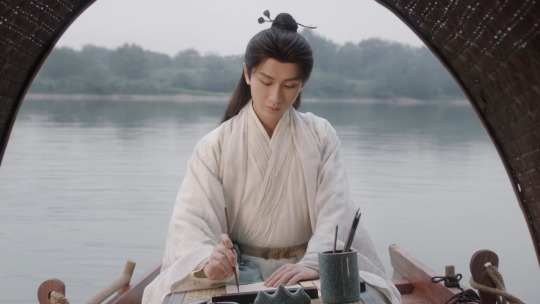
yeah the letter was delivered to the intended recipients. the letter also did say 李相夷绝笔 lit. the final writing by li xiangyi. there's a brief exchange between him and the assumed "boatman" asking him where he was going. and we see he spat blood while writing yeah but:
llh/lxy's eyesight had been failing for some time.
Professional Letter Writers are a thing in the past in service to people who can't write their own letters (idk enough to verify the historical accuracy in this specific context though)
what has been bugging me since forever is the manner of speech of the letter. yeah it's different from their everyday speech, but that's actually perfectly fine since this is A Letter so I'm good with it being more formal. but... there's something I just can't quite pinpoint. especially with the use of the 君 jun pronoun by llh/lxy to refer to dfs when there could be other pronouns with less connotations of intimacy (and scholarly/imperial court system) implied and still conveyed cordiality, marking a shift in their relationship. (I'm not well versed with wuxia as a genre enough to know what are the conventions. someone else who does can say something though.)
whatever these put together means (eg. he may not have written the letter personally, or he wrote it in a different situation from what we saw, etc etc.) alongside:
this scene existed only as part of a visualisation as the letter content is revealed to the audience (or assumed to be fdb reading the letter to dfs & guests of the wedding spectators of the duel)
the boat lxy/llh jumped on is not the same as the one he was writing the letter on - the boatman is also not on it despite the conversation at the beginning, but lxy/llh's dressing and hairpin are the same as the ones before he jumped. (the boatman delivered the letter so he's real though.)

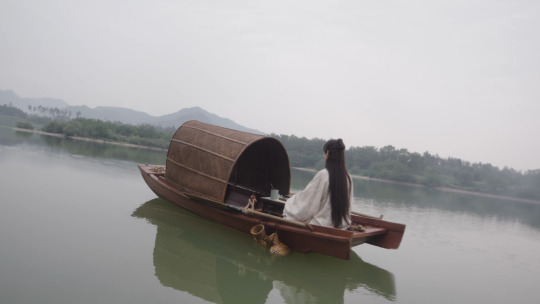
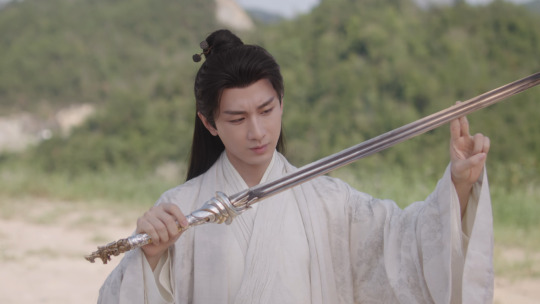
also as @wonderfulnonsense happened to have just pointed out in the tags left in my other post: it's in fact the same boat he took to go fight dfs at donghai 10 years ago. (edit: or maybe it isn't? as pointed out by anon.)
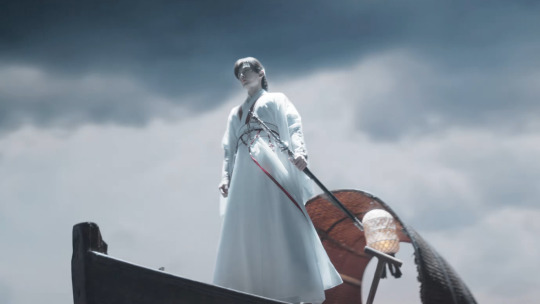
if we viewed whatever we perceived in this scene as imaginary (not what actually happened), then the reading of it being a metaphor for lxy/llh being on his way to enlightenment just makes sense. (the boat being a carrier on his spiritual transformations.) especially when you consider that 彼岸 the other shore is another concept in buddhism to represent enlightenment, alongside the motif of lotuses. (credits to @markiafc for the buddhism reading - edit: mark's meta here) and then, consider the beach ending... yeah.
#莲花楼#mysterious lotus casebook#my posts#lhl#lhlmeta#断剑又绝笔......#this was a question / discussion brought up internally but i wanted more feedback / ideas so. and also for the record#but ofc...if there are details missed out that completely prove this wrong then pretend i never wrote this#pls blame it on the brainrot#lhl discussion of the day is buddhism meta.#taoism and buddhism readings loving hand in loving hand.#honestly i did not think of the story specifically as a path of enlightenment until i was writing the meta#and then it was a downward spiral there on.#it makes a lot of sense given how it's a story about cultivation of the personage (and the struggles of it)#which is the goal of all chinese ideologies. not just taoism and buddhism. they just have different answers#mark is gonna come back with a massive buddhism meta. i'm excited and afraid#also the detail i am sitting on is what is the significance of him signing off as lxy. on top of his r/s with dfs being from lxy's pov.#considering the way he has been identifying with lxy ever since he took over llh as an identity.#PLUS when i first heard lxy thanking dfs for the wangchuan flower. the chinese didn't include the subject of flower#i thought he was talking about 忘川 METAPHORICALLY bc i forgot that was the name of the flower HJBJHHJBJHB#yeah so like this is the river of oblivion he's on or wtv (i'm just babbling now)#also i said INTENDED RECIPIENTS. but the envelope cover is also interestingly empty. though boatman knew who it was meant for
72 notes
·
View notes
Text
galaxy-brained mlc take of the day: mlc is wuxia, yes and maybeee not exactly? it very much is a wuxia aesthetically, but it's actually - conceptually - xianxia story in the core. (this is different from suggesting that it is a xianxia show.) however xianxia can (or should) be considered a subgenre of wuxia, not its own separate distinct genre despite the idea of 仙 xian being fundamentally at odds with the idea of 侠 xia, because they both stem from the same belief. (as seen in mlc, it works with the conventions of traditional wuxia aka li xiangyi the sigu sect leader, to get to the real bits of xianxia concept aka li lianhua's story.) so, mlc is wuxia through and through, inside out. send tweet 🫡👍
-
ok wait I can explain
so, this must be premised on the understanding that any discussion of "仙 xian/deities" in this context is only as its abstract idea of living a life distanced, detached from worldly, human woes instead of the possibility of immortality existing in mlcverse. (if you think about the deities in xianxia stories being basically human beings who have cultivated themselves into immortality.)
this is the explanation of xianxia as a wuxia subgenre (古仙武侠) in the baidu article of wuxia genre:
武侠中的侠,是脱胎于墨家“以天下为己任”的使命感;而仙侠的侠,通常是传达着“能力越大,责任也就越大”的朴素精神。侠乃入世,仙为出世,道教阴阳的无情大道(无情指寻求自我的不断体悟,以达精神的成仙,非没有感情之意)与武侠江湖的有情众生,即是矛盾也是循环,象征着太极之道,这也就是为何古仙武侠也属于正统仙侠流派的原因。
rough tl:
the xia of wuxia is born from the mohist ideal of bearing a sense of responsibility for the world
while the xia in xianxia focuses on the idea of "with great power comes great responsibility"
the idea of 侠 xia is secular. the idea of 仙 xian is beyond the secular - it is to pursue a life of suppressing/taming your own emotions (it does not mean to be completely removed of the ability to feel. it's a pursuit of self-realisation that makes one attain the status of a "deity" spiritually.) 仙 xian is then inherently at odds with wuxia jianghu's deep empathy and connection with the secular world, but it's also connected back to it. this is why 古仙武侠 is considered to be a part of the wuxia genre.
the relationship between xian and xia is conflicting because the former is all about distancing yourself from worldly issues while the latter necessitates an active effort to do something about them.
but it also means that both wuxia and xianxia acknowledge this weight of human emotions and connection to the world. it's just their respective responses and the outcomes they want that they differ in. what is the ideal person? wuxia says it's to be someone who can propagate and execute the ideal of doing something about this weight of your connection to the world, while xianxia says it's to learn to be at peace with that connection, and it's ok to not do anything about it actually - which might even be harder than trying to do something. (and focusing on your own cultivation can be a good thing for the world, in fact.)
with this, I hope it sounds less absurd that I'm connecting mlc's story to the concept of xianxia. lxy's life was a traditional wuxia archetype. (I've already harped on enough about how he fits into the quintessential mohist model of a xia leader.) what happens after, aka his journey as li lianhua, is the real story of mlc. it's a breakdown of that quintessential wuxia hero. it is a story in which the main conflict faced by the protagonist is to struggle with all the worldly woes including his own past and the cases' victims, in defense of the serenity he has found in the past 9 years. it is a natural battle to fight for someone such as llh because as long as you're still human, you will face the implications of human connections and the innate feeling of compassion and urge to do something about it (part of this, I guess, manifests physically in bicha breaking him down and the resistance to cure).
and relating that to an excerpt from an article discussing xianxia in relation to wuxia:
武侠剧的精神内核也是仙侠剧的精神内核,而“仙”实际上是实现新形式的“侠”的手段,由此扩展了“侠”的深度和其实施的时空范围。武侠之中的侠义精神,可以强调其自在,更强调其是自为的,前者是需要逐渐成长和觉醒的。然而对于高于人的仙而言,作为上位者的“侠”之精神,则应该是内在自觉且自为的。
rough tl:
the spirit of wuxia dramas should also be the spirit of xianxia dramas. xian should in fact be another way to bring out and explore the idea of xia.
the spirit of xia in wuxia can be an emphasis on the spirit of freedom, and even more so, the idea of agency and autonomy. the former is gained through growth and awareness. but for xian aka people who occupy a realm above the people on the ground, the xia spirit they embody should manifest in their inner awakening and agency.
it goes without saying that nobody is a deity in this show, and never will be. only in ep 40.5 it came so close to possessing that otherworldly, surreal edge, but that's all to it. deities do not exist in the mlcverse.
but but. it's interesting to point out in the ep 3 flashback when lxy walked through town in the aftermath of the sigu sect vs jym battle, commoners were heard describing it as 神仙打架 百姓遭殃 when immortals fight, commoners suffer. of course they didn't mean it literally but figuratively, that those people of wulin jianghu are high above, detached from the people on the ground. which is. contradictory to the idea of 侠 xia to begin with. so... it could even be interpreted that li lianhua living the spiritually "immortal" life embodied the xia spirit even more deeply than he did as li xiangyi the sigu sect leader, the "immortal" in the eyes of the commoners. actual immortals do not have any real attachment to the people, but a cultivated "immortal" does and is destined to feel and learn to deal with it over and over like llh did. it all comes back in a circle indeed.
#莲花楼#mysterious lotus casebook#lhl#lhlmeta#my posts#dear diary it's (only) day 45 since completion and the symptoms are getting worse#i can imagine at this moment someone putting a hand to my forehead and ask me if i'm ok#not sure if this conversation about wuxia/xianxia genres is welcomed at all but ANYWAY. i just have a lot of feelings about cn stories#i'm discussing the genres in what i think are its barest forms rather than referencing to the ways they've manifested in popular fiction#esp since i'm not as familiar with many of the classic works on a personal level#AND there are so many other elements in play in these genres!!#personally not a fan of that definition of xianxia being 'stories about mythological figures like deities monsters demons etc'#just having deities monsters etc does NOT make it xianxia. that's just 玄幻/神话 fantasy/mythology(!!!)#an interesting distinction i learnt is that mythologies like 后羿射日 and 沉香救母 could be considered as proto-xianxia#simply based on the idea of xianxia being about deities + a sense of heroism#but they would still very much be classified as mythologies instead of xianxia. there's just a lot of overlaps i guess?#went down this rabbit hole a little and just word vomitting as I go. i may not be 100% right or accurate in my interpretations so.
48 notes
·
View notes
Text

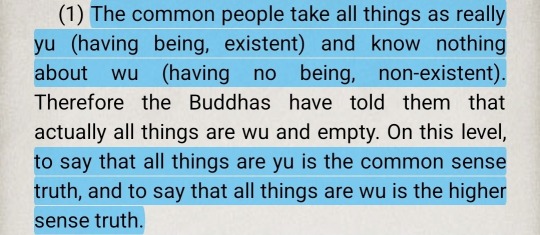

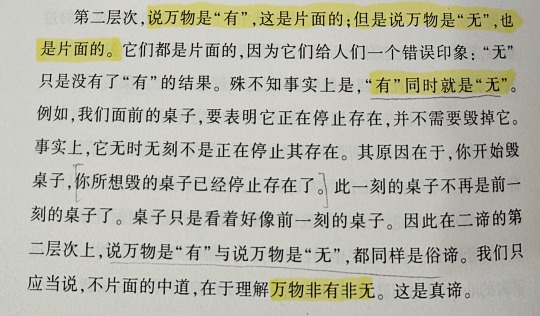


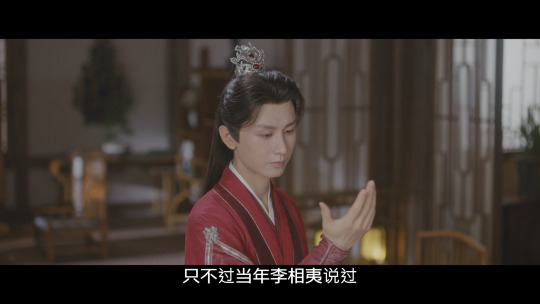

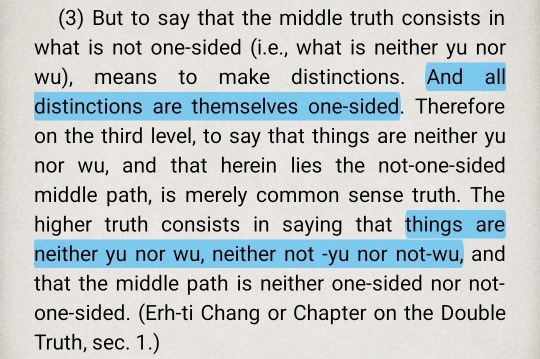
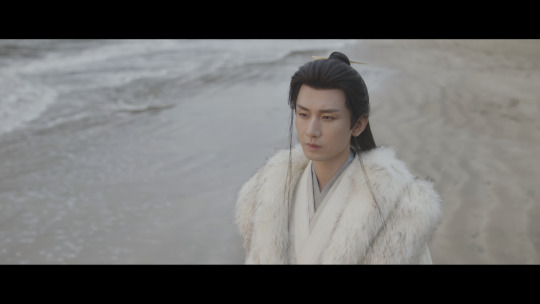
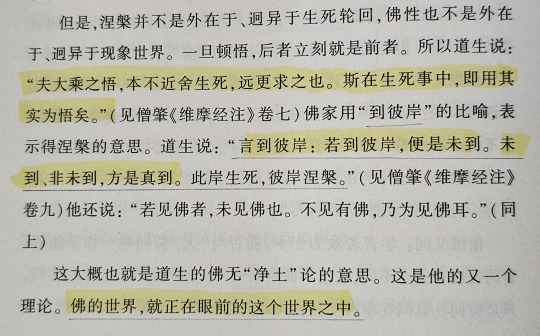
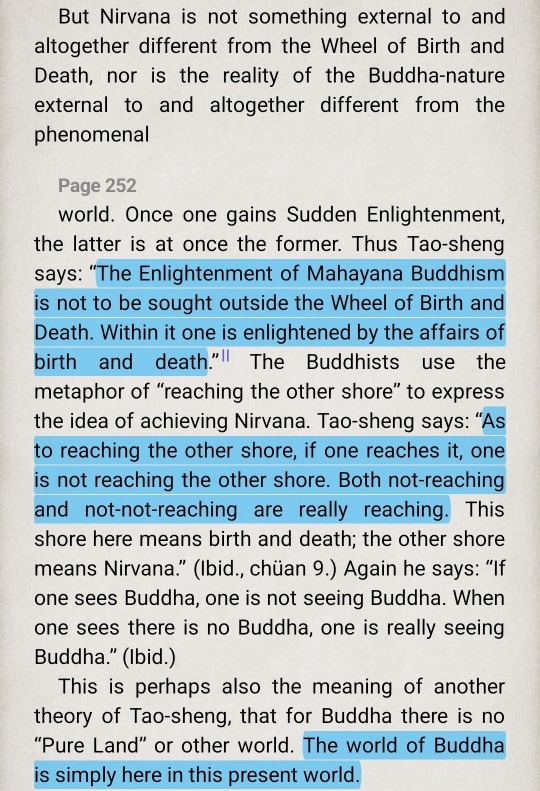
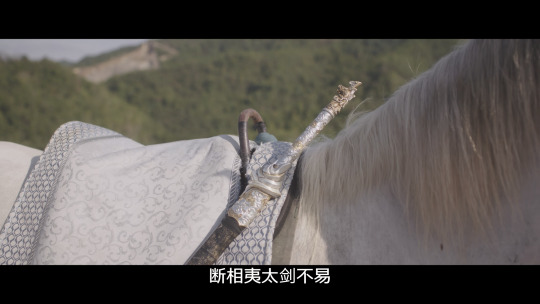
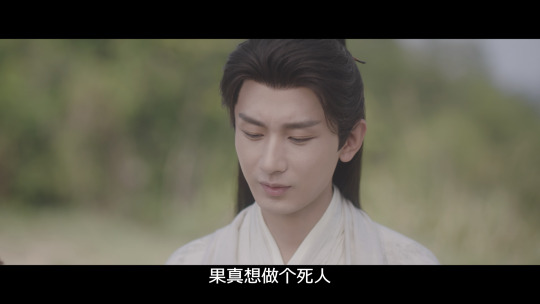


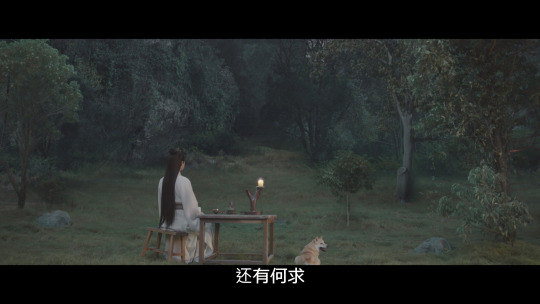

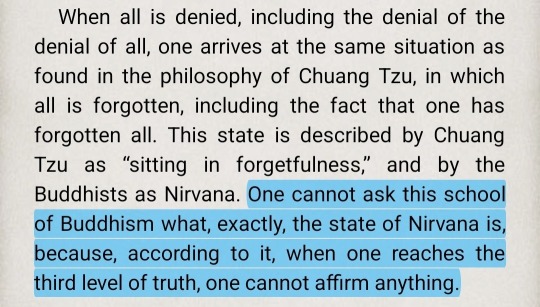

#lhl#lhlmeta#my posts#reached the buddhism chapter in my reread and i'm possessed by lxy/llh thoughts. getting it out of my system and i need to sit on it too#(ding dong it's my time to be pretentious about lhl again :3)#actually what's rly impt to me is how the second layer of truth describes very closely to how i view the state of lxy existing as llh#and the ''epilogue'' ending is not a mere epilogue but a vital part of the story#and equally vital that it's left unspoken where the 'real truth' is reached. and that is the third / final? incarnation of lxy#i am feral every time i remember cfandom invariably interprets llh as someone with 佛性#lxy existing as llh is alr a state of enlightenment yes?
35 notes
·
View notes
Note
"#their rs is only as equal as he decides it to be" hits the nail on the HEAD for me THANK you. llh and fdb are friends the way parents and children can be friends. fdb makes a very commendable effort at being equals with llh and llh can allow and enjoy it to an extent but there IS a gap. fdb not having access to llh's past puts him in a unique position to understand llh in a way that nobody else does and that IS good for llh, like fresh eyes on such a worn out painful story. but there's also an element of responsibility that llh has for fdb that he doesn't have for dfs. dfs is his equal and can make his own life choices. he only escaped dfs at the end because of dfs's own choice to trust him with the flower, not anything llh could have done. but he can still escape fdb on his own power just fine. ANYWAY EVERY RELATIONSHIP IN THIS SHOW IS KILLING ME IN UNIQUE AND SPECIFIC WAYS thank u for understanding
(for context)
NO THANK YOU for understanding!!!! I didn't even think anyone was going to read [inserts opinion that I think could get me into a situation surrounded by knives] as you can tell I hid it deep in the tags of reblogs of my own non-maintagged post hbhjbhjbhjbj - and even much less agree with something of it
hell yeah. to me their relationship is entirely premised on that gap between them, for better and for worse. that's how fdb can be unique to him but at the same time also puts him out of fdb's reach forever (that's why ep 30 hits hard). it's very likely llh wouldn't have continued with their relationship - at least with the degree of investment he did - if not for finding out his connection to sgd. so the familial element in it is virtually inseparable from the manner they ended up to be with each other. (like also, on top of how how lxy was literally a formative "adult" figure to bb fdb.)
while fdb thinks this is a friendship the whole time, llh actually treats fdb like a younger family member 小辈, with the front of being friends bc he was a Liar hiding his identity. and then post-identity reveal was bc he's just a Liar who doesn't feel the need to load his own problems on a younger member as an elder. (I do think this mismatched perceptions of their relationship is delicious)
also that's such a good add-on regarding dihua's relationship - particularly about the element of trust between them, which is a basis to why I can consider them friends in some dimension even back when they were more of rivals, unlike fdb with llh. like llh/fdb, they contain a paradox: being the ones who understand each other better than anyone else can but also bc they're so up close on each other that they fail to really see each other too. they're equals premised on the circumstance of them being from the same generation with a shared past (that is also part of their tragedy), but also, in a very curious space of it not being entirely mutual - simply due to llh being the person he is with the kind of conflict he's facing. (once again, all the relationships llh have are embedded with a degree of them being unrequited and it's <333 </333)
THEY REALLY ARE KILLING ME TOO IN THE BEST WAY POSSIBLE YEAH
#(also then all that makes difang infinitely infinitely fascinating <3 sorry i am a difang truther)#asks#wonderfulnonsense#lhl#lhlmeta#dihua#this is why i still post insane takes nobody prob cares about somehow hoping there may be just 1 or 2 people who would perhaps get it#anw i need more ppl to talk about this show with thank u#literally before i received this ask i was considering if i shld do a proper post talking about this#bc i made some connections/observations i think might be interesting and important to myself to talk about#but i cannot say i don't have a Fear in me about posting them#for a long time i thought i didn't care for fh bc of how the fandom likes it =/= not how i care for it.#but by now i know exactly how i need to read them in order to enjoy them
44 notes
·
View notes
Text
I already adore fdb/princess zhaoling since the first watch but I've only gotten around to thinking about them a lot more lately. for reasons.
they have unmatched compatibility because they're essentially very similar people, you know, in a world surrounded by everyone else more experienced and different from them. two sheltered and privileged, initially naive kids who yearn / enjoy freedom and dares to seek out for it. (though zhaoling pursues after that lifestyle less actively than fdb.) and they are both very loved and protected by the adult figures they met outside of the mainstream system they were born into. as a sign of defiance, zhaoling submits the chicken feet, which fdb chose over any other conventional option -- was their moment of connection to each other, even unbeknownst to themselves.
it struck me that in their first interactions with each other, zhaoling as qing'er was seen frequently serving fdb - practically emulating traditional husband and wife roles. in the same patriarchal microcosm of girls mansion, fdb played the husbandly role with a duty to protect his wife - in fact he was the only person who had the power to do so while she wasn't allowed to fend for herself. this power dynamics switches over completely when zhaoling was revealed to be the princess, fdb becomes totally reserved around her and puts himself beneath her while she, the only person with the power to save everyone else.
however, in between those two points in their relationship, zhaoling was able to reveal her true personality while he acted comfortably with her. in their private moments at girls mansion, she commanded fdb around - he heeds obediently but still felt comfortable enough to voice his opinions to zhaoling. she was possibly the only person who could match up to fdb's 本少爷 young master attitude, while also being the one who can fully admire his qualities without any other considerations. they were able to play off each other freely - and this is most likely how the both of them would have interacted with each other as individuals without any inhibitions of the social roles/identities they were tied to. at their most comfortable with each other.
(the twist in) their ending in the show is hopeful but their fate is as unknown as the ending of anybody else in this show. just as what fdb said to princess, "who is to know now what will happen in the future?"
I love that zhaoling respected his will and that we were given an open reading. but at the same time, any thought of their possible fate beyond this point can't help but be coloured in tragic tones more than not:
over the course of the story after the girl's mansion arc, their dynamics gradually levels again, but I am not sure if it ever managed to revert to the aforementioned ideal state of their private moments together in girl's mansion.
the wait is indefinite. what would be "enough" for fdb? can you really get enough of jianghu? how long is it going to be?
if they wanted to be with each other at all, there is still sort of an expectation that he was to come back to her (not her to him) - the problem not being her as a person, but that being with her came with being married to the imperial court. to marry the princess means they do not simply become husband and wife, but will also become ruler-subject. and the latter would be the greatest tragedy to happen to their relationship as two equals who are able to connect to each other in their understanding of the world.
their true fate together largely depends on who fdb would become after llh is gone. if their ending pointed to something hopeful but uncertain after their last scene together, now in llh's absence, it's even more of a mystery. regardless, what stands between them is jianghu and time - and what is the jianghu fdb is going after now? after fdb went through the redefinition of jianghu once (losing lxy - between finding out llh was lxy, and cutting ties from bcy for the sake of llh) and then once again (losing llh in the ending)?
there is simply no way of knowing for sure for the audience. in the same way, there will no known answer to what happens to fdb and zhaoling. anything is possible. here's another take:
given the person fdb is, it is hard to imagine fdb making empty promises to zhaoling if he felt nothing for her - or despite knowing it will entail with him entering the imperial court aka the last thing he wanted in the world.
I'm inclined to think, even if he fulfills his promise to princess, it will be because fdb has broken the cycle of grief and learnt to deal with it. rather than as a reluctant compromise.
he was supposed to be most like his shifu lxy/llh, according to lxy/llh himself. llh has lived that life of becoming liberated in his own terms. if fdb had truly inherited the life lessons llh was imparting to him (not the martial abilities and techniques), then fdb would be capable of going on to liberate himself and become the person most like his shifu. and he will be a contrast to dfs being the one trapped in grief. (thus also making dfs's place in fdb's potential post-canon life so significant and compelling.) he symbolises the future, the hope of the new generation who has been guided and nurtured by the love of his predecessors.
of course notwithstanding that there is a more sinister reality to the imperial court realm, I would still like to explore a more positive possibility. even though agreeing to the imperial engagement appears to be a submission to the system he was initially intent on rebelling against, I would like to think that growth in fdb would look like acceptance and making life in his own terms within the given parameters - like what llh had made for himself in the first year of becoming llh. it's no longer about taking extreme measures (constantly running away) but an act of balancing and harmonisation. (-> my hypothesis that if lxy is yin, dfs is yang then fdb would be yin-yang)
marrying zhaoling would be for who she is rather than the system she stood for. or if there could be another way, like her leaving to be with him - I'm not sure. but what I know is. in a post-llh world, the people he loves (eg. zhaoling, papa and mama fang) live in the realm of secular, mainstream society (while also not quite - but they're definitely not part of wulin jianghu either). after all, jianghu will cease to be jianghu if the people he loves are no longer in it.
#莲花楼#mysterious lotus casebook#lhlmeta#lhl#my posts#this is my crazed 'this is how fdb/zhaoling can work' ted talk#for the ppl who get what i'm talking about ok <3#just in case you're wondering if nothing makes sense. yes i may not even know what i'm saying but. just know it makes sense#also anything i discuss of post-canon will be inherently embedded with a difang agenda. even when i'm not diving into it#bc thats how it is babyy <3#公主病#(rent-lowering gunshots)
21 notes
·
View notes
Text
because li xiangyi went through being the ideal mohist xia leader burdened by the expectations of establishing and giving undifferentiated, universal love. crashed and burnt from that-
li lianhua - who is the part of lxy that has forsaken those ideals - conceptually, cannot be brought back by loving others because his ending is that he was precisely going against the grains of living for others out of a love that inevitably requires one to give up on your own will and wishes.
the reason he gave to fdb is a bigger noble cause for the society. and the rationale he gave himself was to protect fdb. they're all in play. but the core reason was for himself. at least it's the most meaningful to me at a conceptual level.
#莲花楼#mysterious lotus casebook#I'm posting this on the fly. at work#but the mohist framework is def smth I've personally been reading lxy with for a long time#it has been haunting my brain for some time and if I don't put it in words any sooner. is2g.#the massive xdq/lxy meta is still gonna take some time...#my posts#lhl#lhlmeta
10 notes
·
View notes
Text
remembering tonight "变得不适应因为它们原本来自江河大海 世上本不应该有池塘" (said by a monk character) and thinking about the sea being repeatedly suggested to be the place with the last traces of lxy - and llh - in this world
#rough tl: 'they found themselves out of place bc they came from the rivers and sea. there ought not to be ponds in the world to begin with'#(it's just going home)#lz 1994 is not a perfect film to me but it's got some banger lines that GET IT.#once again this is not anything new i'm saying about lhl/llh but everyday i ruminate and think. oh they understand OKAY.#they know what they're doing. it's all in the narrative and the motifs#mainstream cnet reading of lhl/llh has always taken a buddhist lens. and thinking about that one cfan who specifically said chan/zen:#the journey of liberating yourself is. smth you can attain in ordinary mortal life but it's also smth that warrants continuous reiteration#it rings so true to lxy's life. you think you've shed pretensions of your old life and indeed you have gained new perspective and clarity#until it stops serving you and you realise it's not enough and it's time to move again#if the idea of llh is built on the denial of the idea of lxy#then towards the end of the show lxy realises this distinction is one-sided and imagined#if what 'llh' had offered to him is the taste of liberation and freedom then clearly it had run its course. face it. it's time to move#he experiments with his identities like he experiments with his cooking. the last one's alr good enough. why stick to it#anw there's no coherence in this post. just tacking thoughts all to this like a board so that i'll eventually write a proper post. maybe#lhlmeta#lhl#my posts#GOOD NIGHT IT'S 2AM jfc not again
4 notes
·
View notes
Text


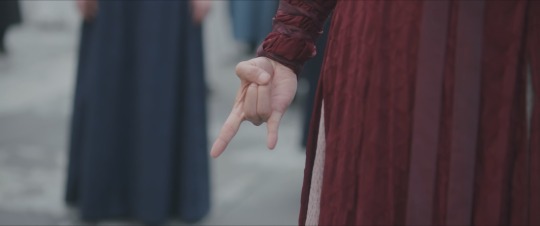



横扫天下容易,断相夷太剑不易 ... 让你杀我总是不宜的
ep 9贡献了又一个让我直呼'妈的他好爱(懂)他'的名场面... 就是... 全场的人在欢呼少师是多么多么好的宝剑,而李莲花也还在迟疑。然后李莲花都没来得及识破的假少师,直接就立刻被笛飞声识破了。(老笛整个''可我只看向他眼底 而千万人欢呼什么 我不关心''的视角 :'3)
一想到少师本来就是四顾门门主李相夷的象征。就符合笛飞声从一开始就很看得透这个象征武林地位的'李相夷'。
下凡、化为人形后的'李莲花'却是他须要琢磨的。(“不懂你但尊重你”)
但笛飞声也可能是最有能力参透李莲花的人。所以才有了第二次的断少师。虽然这次不是笛飞声亲自断的少师,但是没有他的点醒就不会有李莲花最后一次得到的感悟。
看过有人说李莲花的一句“让你杀我总是不宜的”其实不是对肖紫衿说的,而是对少师说的。是有道理的。还有想想其实又有另一个解读的可能。就是...感觉一部分有点也是他会想对笛飞声说的吧?(但也有可能我就只是我简单的cp脑)
如果再一次决战东海,就算李莲花肯下场,他肯定是要被笛飞声打重伤、杀死的吧??(就像上次)。然后对应前几句他回想笛飞声说的“横扫天下容易,断相夷太剑不易”。
说到来,少师和相夷太剑都是假象,是俗世牵绊的象征。如果看破了就没有它们存在的意义。所以就得下定决心断了少师… 李莲花做这个决定也就等于在断了笛飞声要战胜他的执念。间接让他直面现实、放下执念。这也是笛飞声心里自己须要过的一关吧?嗯。
要战胜'李相夷'对于笛飞声不难。'李相夷'对于笛飞声就是一个很明显观念、价值、道德上的“对���方”。(横扫天下容易)但是他面对的李莲花是一个“人”。真正要克服他对一个“人”的执念就太难了。(断相夷太剑不易)李莲花做到了,现在就该轮到他了。
#the dihua thing that has been gnawing on me for the past week since the last rewatch day.#pls scroll by. dont click read more unless anyone wants to see the incoherent thoughts ive dumped into the post in chinese#still feeling half human from work so i made zero progress w the meta so i gotta do this as a stopgap...#lhl#my posts#dihua#lhlmeta
4 notes
·
View notes
Note
Your boat meta was very interesting, but, I hope it's ok to say since you said you wanted more feedback, I don't think the boat at the end is the same boat from the beginning? The prow shape looks different to me.
thank you yes! no worries! i am bad at paying attention to such details so i'm glad someone more perceptive about stuff like that points it out. (either way, it doesn't really affect the point of the post to me since it was just a bonus point.) but thank you for pointing that out!!
3 notes
·
View notes